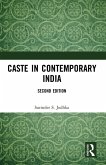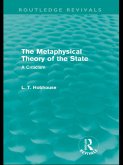Of the five major sociologists whose views on Indian society are assessed in this work, originally published in 1979, Marx and Weber made a special study of the subject and had something definite to say about the future of Indian society. Herbert Spencer was primarily concerned with the effects of colonial rule on India's progress, while Durkheim and Pareto tended to observe Indian society from a comparative point of view. However, as this study shows, all five sociologists touched on two special aspects of Indian society - Indian religion and the caste system. The other features of Indian society which they discussed in their various writings range widely from marriage and family structure, through village communities and the social structure of cities, to political organization, the educational system, economic conditions, and the future progress of Indian society.
Dr Madan demonstrates the correctness of Marx's contention that the political subordination of India was the one great hindrance to the future progress of Indian Society. He points out, though, that Marx failed to see clearly the effects of the caste system on economic development, and shows that this aspect was more correctly assessed by Max Weber. On the other hand, in Dr Madan's view, Weber's observation that Indian religion was 'other-worldly' and therefore a great obstacle to progress in Indian society lacked incisiveness.
By focusing on a neglected aspect of the writings of five of the great figures in sociology, the book gives a new insight into their work, and at the same time highlights many hitherto unrecognized facets of India's complex social structure.
Dr Madan demonstrates the correctness of Marx's contention that the political subordination of India was the one great hindrance to the future progress of Indian Society. He points out, though, that Marx failed to see clearly the effects of the caste system on economic development, and shows that this aspect was more correctly assessed by Max Weber. On the other hand, in Dr Madan's view, Weber's observation that Indian religion was 'other-worldly' and therefore a great obstacle to progress in Indian society lacked incisiveness.
By focusing on a neglected aspect of the writings of five of the great figures in sociology, the book gives a new insight into their work, and at the same time highlights many hitherto unrecognized facets of India's complex social structure.
Dieser Download kann aus rechtlichen Gründen nur mit Rechnungsadresse in A, B, BG, CY, CZ, D, DK, EW, E, FIN, F, GR, HR, H, IRL, I, LT, L, LR, M, NL, PL, P, R, S, SLO, SK ausgeliefert werden.









